The Week in Internet News: Facebook to Fact-Check Videos and Photos
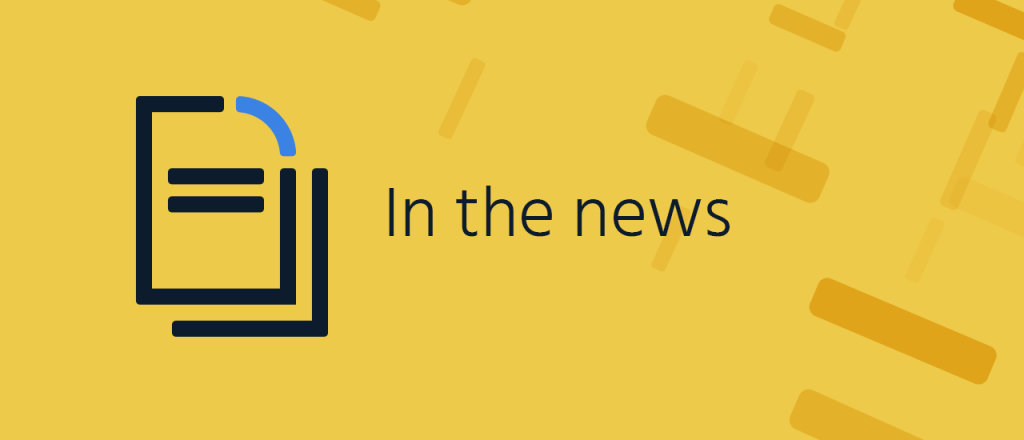
Fight against fakes: Facebook plans to fact-check videos and photos posted on the social media platform in an effort to combat misinformation, reports the Associated Press on SeattleTimes.com. Fact-checkers will use several methods, including analyzing image metadata, to determine accuracy, and Facebook will label photos and videos that are fakes, the company said.
Regulating IoT: A controversial Internet of Things security bill has passed the California legislature, ZDNet reports. The bill requires IoT device makers to build in “reasonable security,” but the legislation is vague about what that might entail, critics say. Still, it’s the first bill passed in the U.S. that addresses IoT security.
Fake reports of fake news law’s demise: Malaysia’s opposition party has blocked efforts to repeal a controversial law that penalizes the spread of fake news, StraitsTimes.com reports. Critics say the law, which includes penalties of up to six years in prison for spreading misleading information, is an attack on free speech, but the Senate blocked the repeal in a challenge to the new government of Prime Minister Mahathir Mohamad.
Angry Birds tackles blockchain: We’ve talked about a lot of potential uses of blockchain technology here, but this is a new one. The Continue reading
Celebrating One Year With Our New Website
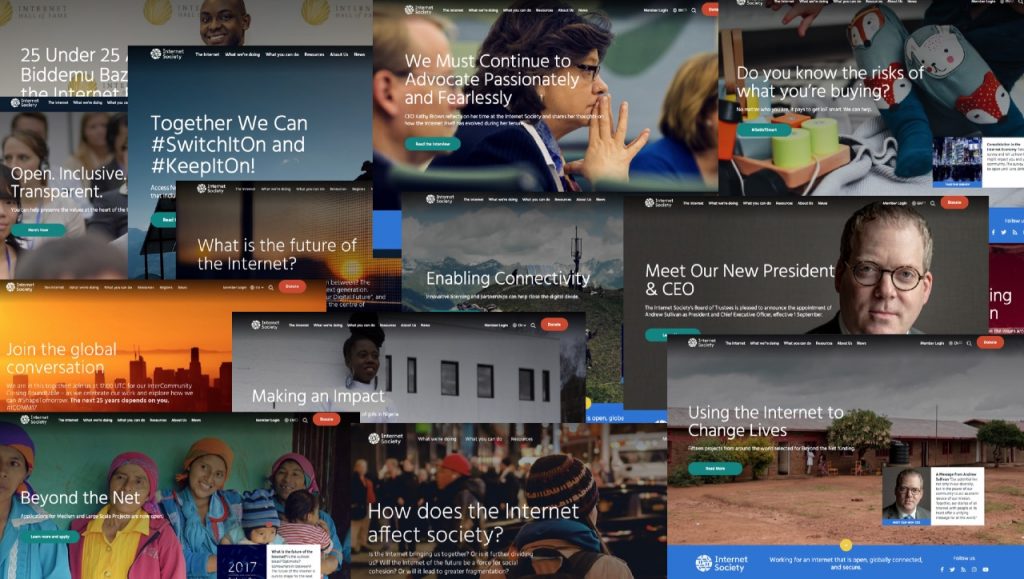
It is hard for me to believe, but it was one year ago today that we launched this new website! On September 14, 2017, James Wood began our flow of news with a welcoming blog post – and just a few days later the site was heavily used as part of our massive 25th Anniversary celebration. It was the culmination of a rather insane several months in which a whole crew of people within the Internet Society, as well as at our partners Moving Brands and ATTCK, all burned countless hours to make this site a reality.
One year later, we’ve published over 500 news articles and blog posts; published over 120 new resources and tutorials; promoted many events, and maintained a consistent flow of content on the critical issues affecting the Internet.
We’ve built campaign pages, integrated video and graphics (ex. our GIR page), showcased the amazing work our Chapters are doing, integrated social components (ex. our IoT page and Instagram), and pushed the limits of how many links any sane person should have on a page. I continue to be impressed by the beauty of pages like our Issues page (just move Continue reading
From Idea to Action: Beyond the Net Selects 15 Amazing Chapter Projects!
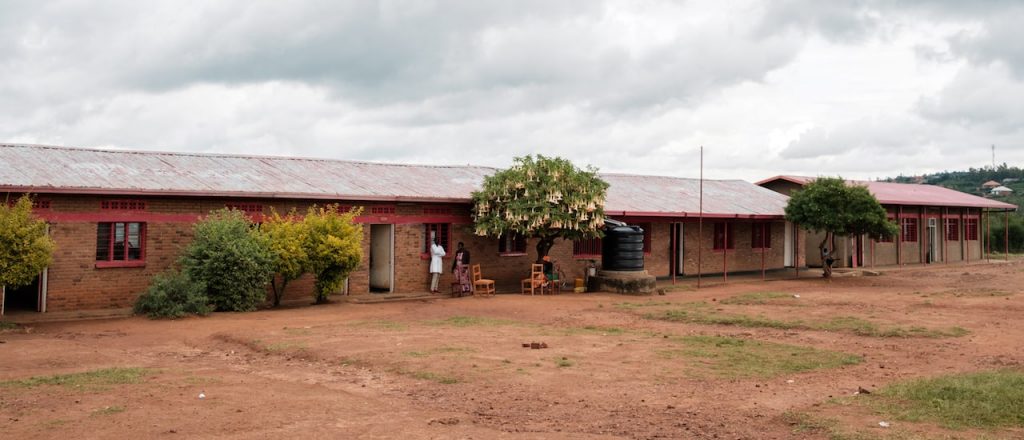
The Beyond the Net Funding Programme is pleased to announce the results of our 2018 Grant Cycle. A total of 49 applications were received, and after a thorough reviewing process, 15 amazing projects were selected.
These projects are at the core of our mission, and will use the Internet to develop Community Networks in underserved areas, to empower women through ICT, as well as bringing awareness on Internet policies around the world.
This is the result of months of effort from our Chapter Community. Many discussions, numerous clarifications and proposals, updates, and revisions form the Beyond the Net Selection Committee. We are proud of you all.
Please join us in celebrating the following projects!
Developing community networks in the Northern region of Brazil – Brazil Chapter
Supporting and promoting the development of the Internet to enrich people’s lives, the project aim is to contribute to the growth and improvement of community networks policies and practices in Brazilian rural areas, in order to strengthen those who are marginalized. Instituto Nupef will work to develop a new network in the state of Maranhão as well as a developing a communications plan for the Babassu coconut breakers organizations and movements. Objectives include Continue reading
Indigenous Access: “We Haven’t Reached Our Full Potential”
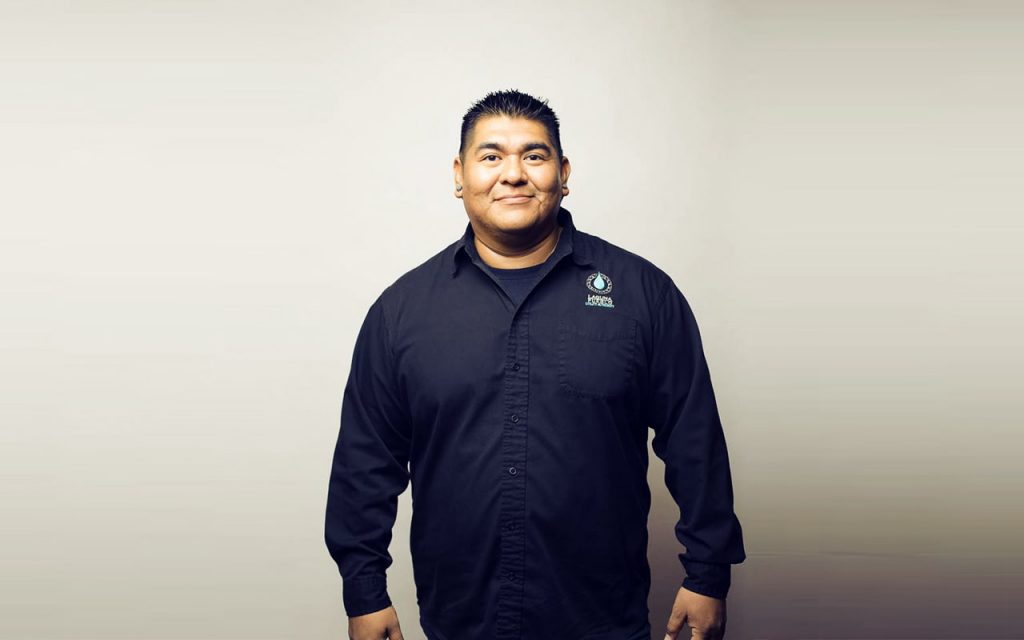
In November 2017, the Internet Society hosted the inaugural Indigenous Connectivity Summit in Santa Fe, New Mexico. The event brought together community network operators, Internet service providers, community members, researchers, policy makers, and Indigenous leadership to work together to bridge the connectivity gap in indigenous communities in North America. One of the participants shared his story.
“We haven’t reached our full potential,” says Gilbert Martinez, of the Pueblo of Laguna’s Kawaika Hanu Internet. “Community Internet access is good, but it can get better.”
The Laguna Utility Authority was awarded a $3.3M grant through USDA Community Connect, which will enable a number of projects provided the community is an Internet Service Provider, among other stipulations. The benefits of Internet access – and the grant’s impact – are already evident, which Martinez shared in a presentation at the Indigenous Connectivity Summit: one community member was able to apply for an internship with the Laguna Tribal Courts and is now working to complete her bachelor’s degree in criminal justice; one family uses the Internet for school work, to pay bills, and to do online research; an unemployed computer center volunteer obtained a job at a media company; and silversmiths are able to Continue reading
The Week in Internet News: ‘Five Eyes’ Demand Access to Encrypted Information
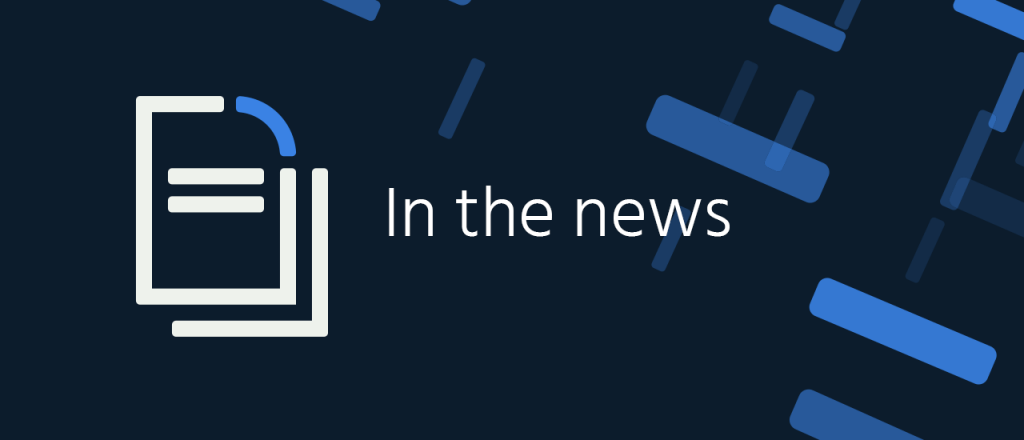
Prying eyes: The so-called Five Eyes – the surveillance alliance of Australia, Canada, New Zealand, the U.K. and the U.S. – pledged not to weaken encryption, at the same time as the countries are pushing tech companies to give them access to encrypted evidence, notes SearchSecurity. Representatives of the five countries released a new “Statement of Principles on Access to Evidence and Encryption,” after a recent meeting in Australia. Encryption can help “child sex offenders, terrorists and organized crime groups … frustrate investigations and avoid detection and prosecution,” the statement suggests. More at ZDNet.
AI as public enemy No. 1? Artificial Intelligence is a bigger concern than climate change or terrorism, says the incoming president of the British Science Association, The Telegraph says. Really? AI progress is “happening too fast” without enough scrutiny or regulation, according to physics professor Jim Al-Khalili. It certainly wouldn’t be the first time technology has outpaced regulation.
AI vs. democracy: Meanwhile, AI is transforming social media, with major implications for democracy, worries Clint Watts, a distinguished research fellow at the Foreign Policy Research Institute, in an opinion piece at the Washington Post. “Over the long term, AI-driven campaigns may well be the undoing Continue reading
Even Better MANRS During August

We already discussed the MANRS activities during SANOG 32 where we organised a Network Security Workshop and signed an MoU with the ISP Association of Bangladesh (ISPAB), but the Internet Society was also involved with three other events during the month of August. This included the Symposium on Internet Routing Security and RPKI, VNIX-NOG 2018 and the inaugural INNOG 1.
Symposium on Internet Routing Security and RPKI
ZDNS along with CNCERT organised a symposium on 17th August at Crowne Plaza Beijing to discuss routing security issues and how RPKI can help address this problem. There were many prominent participants representing local, regional and international entities including Baidu, Tencent, Alibaba, Huawei, ZTE, the Chinese Academy of Sciences, APNIC, ICANN, along with the Internet Society.

Dr Stephen Kent (BBN) was the keynote speaker, having played an important role in the SIDR (Secure Internet Domain Routing) Working Group at the IETF (Internet Engineering Task Force) and also co-authored many RFCs (Request for Comments) on RPKI. He discussed the ideas behind RPKI and Route Origin Authorization/Validation.
George Michaelson (APNIC) who along with his colleague Geoff Huston co-authored RFC 6483 – Validation of Route Origination Using the Resource Certificate Public Key Infrastructure (PKI) and Route Origin Authorizations Continue reading
We Need a Common Language for the Internet of Things

When someone tells me they have bought smart light bulbs, an Internet-connected pet cam, or any other Internet of Things (IoT) device, I always get an unsettled feeling in the pit of my stomach. They’re so excited about the affordances or their new IoT devices and apps, but I am skeptical about the privacy and security vulnerabilities. How do I have a conversation about these concerns without coming across as hyper paranoid? Perhaps the answer is that we aren’t quite ready to discuss these issues on a societal level.
Privacy and security advocates all over the world have been talking about the threats that IoT may pose to society – unless standards and regulations are put in place to help mitigate some of these risks. They champion that privacy and security should be built into design and should not come as an afterthought.
While I praise the work that advocates are doing, IoT devices are on the shelves right now and we need to be able to have conversations with everyday folk about what privacy and security risks look like in the digital economy. However, how can we have these conversations when we haven’t yet established understandable and common terms Continue reading
From Imagination to Action: In Latin America, Building the Internet That Women Want
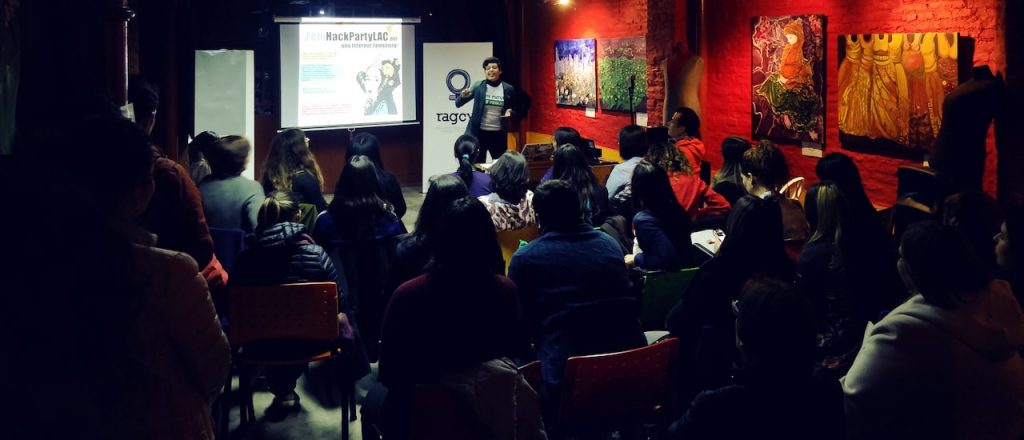
In 1843, Ada Lovelace published “Sketch of the analytical engine invented by Charles Babbage” in the book Scientific Memoirs. But because of her “condition” as a woman she, like many women who were pioneers in their time, was forgotten by history. Women could not access education or the sciences and, for that reason, history forgot them, just as we forgot that many women were mothers of the Internet.
“History drove us out of the digital industry, we stopped being important and a male industry was created.”
– Kemly Camacho, Sula Batsú
Every day many people ask us, where are the women? Why don’t they participate? I tell them to look at the immense number of initiatives that women are doing in Latin America and the Caribbean.
With the cold of Buenos Aires, between its tall buildings and its warm people, our friends at the Tierra Violeta Cultural Center received us after four months of planning the FemHackParty LAC. In December 2016, at the Internet Governance Forum that took place in Guadalajara, Mexico, we organized with a group of women the first FemHackParty, within the framework of 16 days of activism against violence against women. We had the chance to learn Continue reading
Our Right to Protect Our Autonomy and Human Dignity

“We are entering a new world in which data may be more important than software.”
– Tim O’Reilly
In this digital era where modern technology has become as ubiquitous as air, a seismic shift in innovation, revenue generation, and lifestyle has transpired, whereby data has become the most valuable commodity. In Australia, many youths struggle to “disconnect” completely from digital devices, with the proliferation of wearable technologies and broadband access facilitating the unavoidable integration of technology into our everyday lives. As a 21st century youth, and part of the demographic who consumes the most Internet and digital media, there exists a stark disparity between the amount of time we spend engaging with digital devices and our actual understanding of Internet governance and/or legislation.
We have become so reliant on the Internet and technology, we rarely question the personal risks we take and potential breaches of law that occur. Our dependence on digital devices and instant gratification prompts us to accept “Terms and Conditions” without ever reading a word and allows cookies to be saved despite having no idea what they are. Alarmingly, in the event our data is exploited or shared without our consent, we are oblivious to the Continue reading
My Experience As an APrIGF18 Fellow

The 2018 Asia Pacific Regional Internet Governance Forum (APrIGF) took place last month in Vanuatu. Tripti Jain, who attended as an APrIGF Fellow, shared her experiences.
This was my first experience at AprIGF, my first fellowship and also my first time as a speaker on a panel. Believe me, I was anxious and scared but thanks to the APrIGF community: organizers, members, participants and fellows, everyone made me feel at home a thousand miles away from my abode. I had one of the best learning weeks and couldn’t have asked for a better venue to learn with little to no distractions around and beautiful sunsets to watch while walking back to our rooms everyday. Fellows were facilitated with everything that we could have needed: cozy rooms, good food, articulate speakers and joyful socials every night.

One of the perks of being a fellow at APrIGF 2018 was that my learning experience began weeks before even getting to Vanuatu. All the fellows were required to participate and go through a basic course on Internet Governance by the Internet Society. This course was one of my personal favorite bits of the fellowship. I learnt a lot through this exercise. There are Continue reading
The Week in Internet News: More Communities Building Their Own Broadband Networks

Build-your-own broadband: Small towns in the United States and the United Kingdom are increasingly bypassing large ISPs and building their own broadband networks, according to two recent stories. Reuters notes that rural communities in the U.K. are building networks to improve speeds and expand coverage, while Wired.com reports that independent broadband networks are proliferating across the United States in small towns, with speeds often exceeding a gigabit per second.
Where the IT jobs are: If you understand blockchain or Artificial Intelligence, job recruiters are looking for you. SHRM.org, the website for the Society of Human Resource Management, notes there’s been a 500 percent increase in blockchain-related job postings on Stack Overflow in the past year. Meanwhile, the Economic Times of India reports that AI experts are getting job offers that include major salary increases.
Power grid and IoT security don’t mix: Princeton researchers have suggested that insecure IoT devices could be used against the power grid, potentially leading to local power outages or even widescale blackouts, SecurityBoulevard.com reports. During a recent conference, the researchers demonstrated how an IoT botnet of Internet-connected high wattage devices could give attackers the ability to launch large-scale attacks on the Continue reading
Indigenous Communities: “Stuck…Between Technology and Tradition”

In November 2017, the Internet Society hosted the inaugural Indigenous Connectivity Summit in Santa Fe, New Mexico. The event brought together community network operators, Internet service providers, community members, researchers, policy makers, and Indigenous leadership to work together to bridge the connectivity gap in indigenous communities in North America. One of the participants shared her story.
Christel White, geographic information system (GIS) specialist for the Pueblo of Cochiti, is no stranger to intertribal dynamics. White is an enrolled member of the Onondaga people and grew up on the Seneca Nation reservation in New York State. In her current role, she ponders how the specific culture and needs of the people of Cochiti impacts the role of connectivity. “I want to bring in GIS online, but we don’t want cultural sites out in circulation,” explains White. “Do we want new land on there?”
The lack of Internet speed in tribal offices means White currently works from home, but says that it impacts her ability to interact with the public. If someone comes into the office with a question, White is not always physically there, but she can’t otherwise complete her work without a better connection. “Indigenous communities are often stuck on Continue reading
Call for Participation – ICANN DNSSEC Workshop at ICANN63 Barcelona
Do you have a great idea about DNSSEC or DANE that you’d like to share with the wider community? If so, and you’re planning to be in Barcelona, Spain for ICANN63 in October 2018, submit a proposal to present your idea at the DNSSEC Workshop!
Send a brief (1-2 sentence) description of your proposed presentation to [email protected] by Friday, 07 September 2018.
The DNSSEC Deployment Initiative and the Internet Society Deploy360 Programme, in cooperation with the ICANN Security and Stability Advisory Committee (SSAC), are planning a DNSSEC Workshop during the ICANN63 meeting held from 20-25 October 2018 in Barcelona, Spain. The DNSSEC Workshop has been a part of ICANN meetings for several years and has provided a forum for both experienced and new people to meet, present and discuss current and future DNSSEC deployments.
First APrIGF in the Pacific a Resounding Success

The 2018 Asia Pacific Regional Internet Governance Forum (APrIGF) which was held in Port Vila, Vanuatu from August 13-16 came to an exciting close after a week of valuable dialogue on Internet Governance issues in the region. This was the first time the APrIGF was held in the Pacific and the local hosts, Vanuatu’s Office of the Government Chief Information Officer (OGCIO), Vanuatu Telecommunications and Radiocommunications Regulator (TRR), and the local people of Vanuatu showed the APrIGF community what Pacific Island hospitality is all about.
The community had the privilege of having APrIGF 2018 opened by none other than the Vanuatu Prime Minister, Charlot Salwai. Also present at APrIGF 2018 and delivering his keynote address was the godfather of the Internet himself, Vint Cerf who took time to contribute in various discussions and engage with participants. With the theme of Empowering Communities in Asia Pacific to Build an Affordable, Inclusive, Open and Secure Internet, the calibre of delegates speaks volumes for the importance of such a dialogue.
Participants from all over Asia-Pacific, representing various stakeholder groups, were present to contribute to discussion and engage in the proceedings. This was the culmination of months of planning and execution by the Continue reading
It Is a Challenging Time for the Internet: We Must Not Let It Be Undermined
On 1 September I start work as CEO of the Internet Society. I have a lot to do to live up to the example set by Kathy Brown with all that she achieved during her leadership. It is a great honour, and I appreciate the trust the Board of Trustees has placed in me. I will work daily to earn the same trust from the rest of the Internet community, in part by being transparent about what drives me to do this.
It is a challenging time for the Internet Society, because it is a challenging time for the Internet. For most of the Internet Society’s history, the expansion and development of the Internet could be regarded as an obvious good. There were always those who simply opposed technological development. There were always those who wanted their own interests protected from the Internet. But Internet users historically benefited so much, so obviously, that skepticism about the value of the Internet itself was rare.
Things have changed. Every technology can be used for negative ends. The Internet still, plainly, brings gains in efficiency, convenience, and communications. Yet in the recent past, some of the negative uses have become apparent, which leads Continue reading
Strengthening Foundations for Creating Open Internet Standards
The Internet Engineering Task Force has reached a significant milestone in the process of evolving its own administrative structure to best suit the current requirements of its work. After nearly two years of discussion about various options, the IETF community has created the IETF Administrative LLC (IETF LLC), a new legal entity. Both the Internet Society’s CEO & President Kathy Brown and the Internet Society’s Board of Trustees Chair Gonzalo Camarillo have expressed strong support for the process that has led to this point, and for the direction the IETF has decided to take. Continuing its long-standing positions, the Internet Society also made financial commitments to support the process, and to the IETF going forward.
All of us at the Internet Society who work closely with the IETF believe this new administrative structure strengthens the the foundation for an Internet built on open standards. The new structure will not change any aspect of the IETF’s technical work or the Internet standards process, and clarifies the relationship between ISOC and the IETF. Importantly, the IETF and ISOC continue to be strongly aligned on key principles. ISOC initiatives related to the IETF, such as the Technical Fellows to the IETF and the Continue reading
Future Thinking: Mozilla Director of Public Policy Chris Riley on the Internet Economy
Last year, the Internet Society unveiled the 2017 Global Internet Report: Paths to Our Digital Future. The interactive report identifies the drivers affecting tomorrow’s Internet and their impact on Media & Society, Digital Divides, and Personal Rights & Freedoms. We interviewed Chris Riley to hear his perspective on the forces shaping the Internet’s future.
Chris Riley is Director, Public Policy at Mozilla, working to advance the open Internet through public policy analysis and advocacy, strategic planning, coalition building, and community engagement. Chris manages the global Mozilla public policy team and works on all things Internet policy, motivated by the belief that an open, disruptive Internet delivers tremendous socioeconomic benefits, and that if we as a global society don’t work to protect and preserve the Internet’s core features, those benefits will go away. Prior to joining Mozilla, Chris worked as a program manager at the U.S. Department of State on Internet freedom, a policy counsel with the nonprofit public interest organization Free Press, and an attorney-advisor at the Federal Communications Commission.
The Internet Society: Why is there a need for promoting a better understanding of technology amongst policy wonks, and of policy among technologists?
Chris Riley: Continue reading
Watch the Experts Session on Encryption from Canberra
Internet Australia and the Internet Society are pleased to invite you to watch the recording of an Experts Session on Encryption on 20 August 2018 at Parliament House, Canberra, Australia.
Encryption technologies enable Internet users to protect the integrity and the confidentiality of their data and communications. From limiting the impact of data breaches, to securing financial transactions, to keeping messages private, encryption is an essential tool for digital security. As a technical foundation for trust on the Internet, encryption promotes commerce, privacy, and user trust, and helps protect data and communications from bad actors.
During the session, international and local experts from across the field discussed the technical aspects of encryption and digital security. They explained how encryption is used to secure communications and data, and explored its role in the Australian digital economy. Experts also discussed the risks associated with attempting to provide exceptional access to encrypted systems.
The post Watch the Experts Session on Encryption from Canberra appeared first on Internet Society.
The Week in Internet News: U.S. DOJ Pressures Facebook to Break Messenger Encryption
Encryption wars, part 2,403: The U.S. Department of Justice is pressuring Facebook to break the encryption in its Messenger app so that investigators can access communications by suspected Ms-13 gang members. The DOJ has asked a judge to force Facebook to allow the agency to tap into Messenger, with the outcome potentially affecting other tech companies, Fortune reports.
Hacking the Apple: An infamous North Korean hacking group has created their first macOS malware as a way to compromise a cryptocurrency exchange, Bleeping Computer reports. The hackers who created the so-called AppleJeus malware are going to great lengths to make it work – even creating a fake company and software product to deliver it.
AI loves TV: As researchers explore ways to give Artificial Intelligence systems curiosity, AIs will sometimes choose to watch TV all day, QZ.com says. AIs playing video games will sometimes die on purchase to see the game-over screen or fixate on a fake TV and remote and flip through channels to find something new.
Certified secure? Trade group CTIA is offering a security certification for cellular-connected Internet of Things devices, TechRepublic reports. Security experts and test labs have participated in the program. With so many Continue reading
Deploying TLS 1.3
Last week saw the formal publication of the TLS 1.3 specification as RFC 8446. It’s been a long time coming – in fact it’s exactly 10 years since TLS 1.2 was published back in 2008 – but represents a substantial step forward in making the Internet a more secure and trusted place.
What is TLS and why is it needed?
Transport Layer Security (TLS) is widely used to encrypt data transmitted between Internet hosts, with the most popular use being for secure web browser connections (adding the ‘S’ to HTTP). It is also commonly (although less visibly) used to encrypt data sent to and from mail servers (using STARTTLS with SMTP and IMAP/POP etc..), but can be used in conjunction with many other Internet protocols (e.g. DNS-over-TLS, FTPS) where secure connections are required. For more information about how TLS works and why you should use it, please see our TLS Basics guide.
TLS is often used interchangeably with SSL (Secure Socket Layers) which was developed by Netscape and predates it as an IETF Standard, but many Certification Authorities (CAs) still market the X.509 certificates used by TLS as ‘SSL certificates’ due to their familiarity with Continue reading